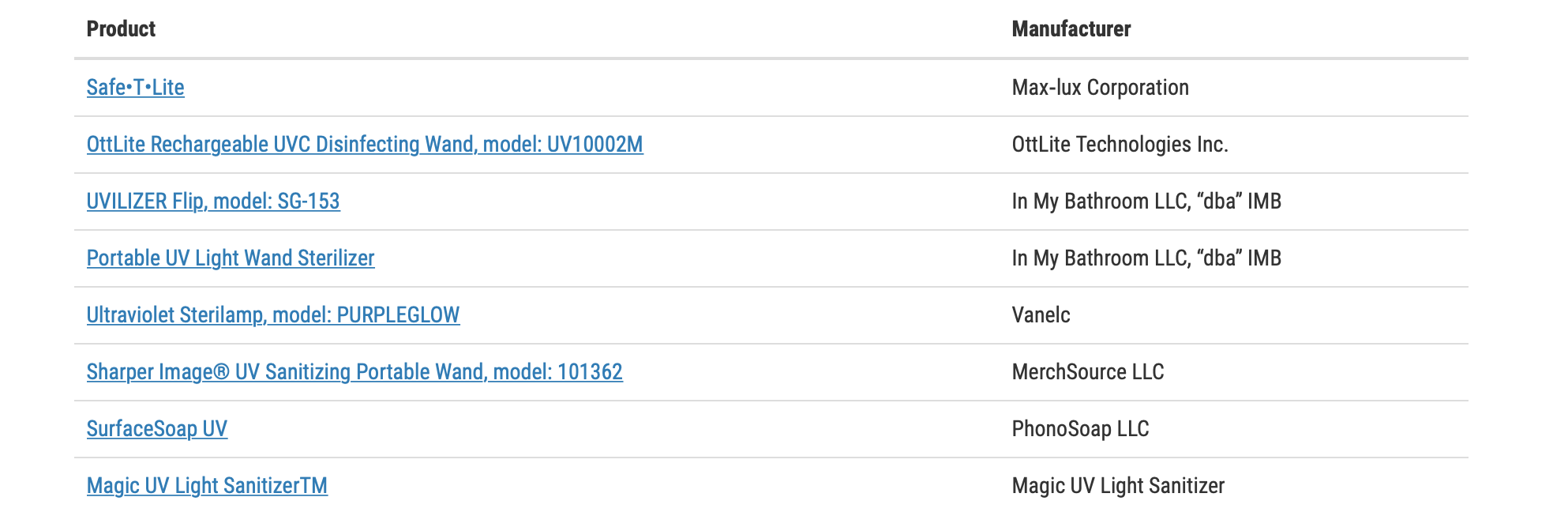The damage can occur with just a few seconds of exposure, officials say. Symptoms include a burn-like skin reaction and photokeratitis, a painful eye condition that can lead to a feeling of sand in the eyes.
Safety investigators on the case said the following list includes products not properly equipped to protect people from the radiation (but noted that the list is not exhaustive, and other products on the market may be unsafe, as well). In some cases, UV-C radiation levels were 3,000 times more than the exposure limit recommended by the International Commission on Non-Ionizing Radiation Protection.

Image Source: FDA (Content draxe.com)
Cleaning Alternatives
Home cleaning products are generally not tested for long-term impact on public health. In fact, it's difficult to even know all of the ingredients in cleaners, since they only have to account for active ingredients.
It may come as no surprise, then, that people who clean for a profession can experience lung damage equivalent to smoking 20 cigarettes a day for 10 to 20 years.
Knowing the chemical damage that can occur from chemical cleaning products, it's no wonder people are looking for alternatives like UV disinfectants. The problem is we don't have strong laws to make sure they are safe before going on sale to the general public.
You can even take a look at its database, focusing in on how products rank in its disinfectant category.
Here are a few cleaning tips to remember:
- While vinegar is a group cleaning product, it is generally not the greatest disinfectant.
- A 2014 study found that it can kill bacteria that causes tuberculosis, however, it took 30 minutes of contact time, which isn't always practical.
- When you do clean with vinegar, use a 1:1 ratio of what vinegar to water for cleaning stovetops, floors and other surfaces. (Always test an inconspicuous spot. Vinegar doesn't play well with certain surfaces, like stone, waxed wood, aluminum and cast iron, according to NSF.)
Conclusion
- UV light disinfection wands are gaining popularity, although the FDA found many to be unsafe.
- FDA testing found certain UV wands emitted UV-C radiation at levels 3,000 times above the recommended safe level.
- Even just a few seconds of exposure at these levels can cause skin and eye damage, the FDA noted.
- Choose safer cleaning and disinfection methods, like scrubbing with soap and water and using unscented rubbing alcohol (minimum 60% alcohol) to kill germs.